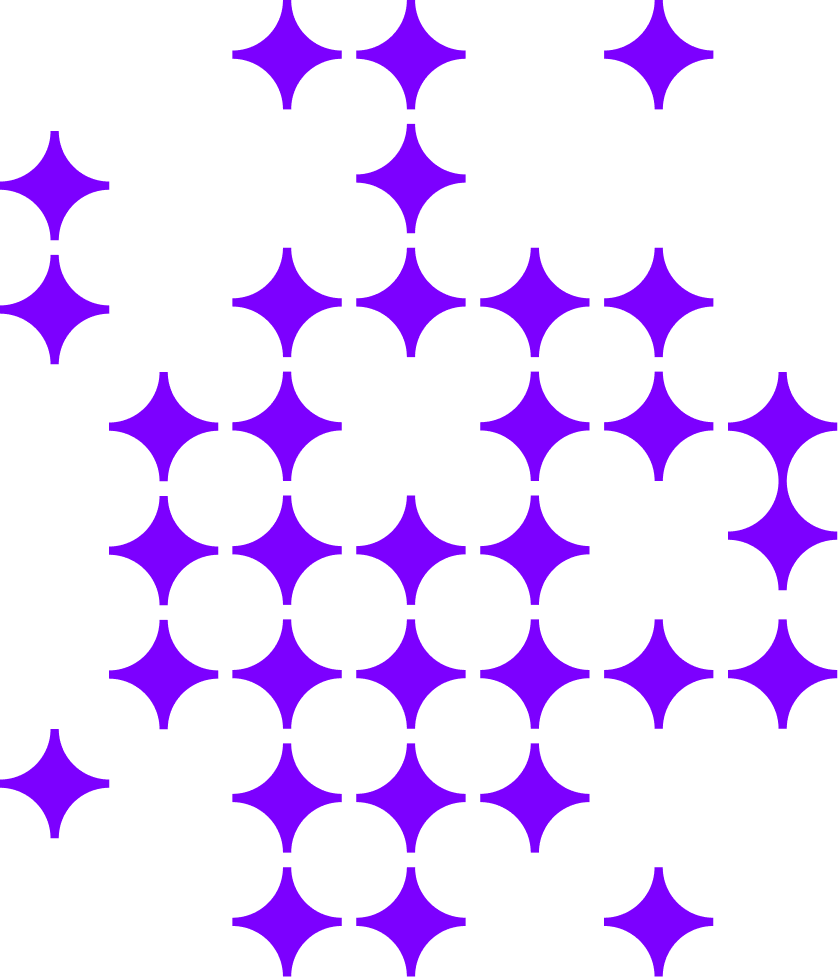
For us, collaboration is not a rigid chart but a resonant coexistence—associative, fluid, and alive. Expertise flows where it is needed, creating spaces larger than the sum of their parts.
Our work is grounded in political innovation, critical futures thinking, social and epistemic justice, decoloniality, and the politics of imagination. From here, we conceive, test, and bring futures into being.
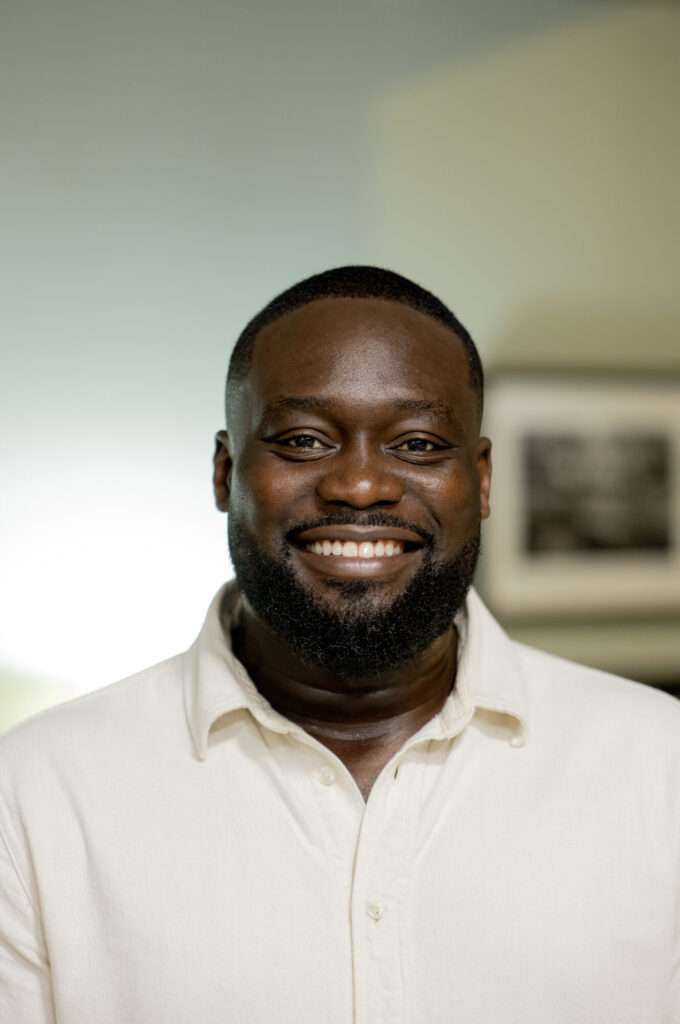
Jeff works at the intersection of social justice, political innovation, and collective imagination. As founder and director of imagineers lab, he develops spaces and processes that support people in exploring new forms of leadership, community, and change.
Previously, he headed the May Ayim Fund and Germany’s first anti-discrimination agency for Black people at Each One Teach One (EOTO). Later, as co-director of the Multitudes Foundation, he was responsible for Europe-wide programs that supported organizations and communities in developing innovative political approaches. Today, Jeff contributes his experience to various committees and expert panels, where he advocates for democracy, anti-racism, and equitable visions for the future. He is particularly interested in how collective imagination can be used as a tool for inner change and social transformation.

Ouassima moves between critical future thinking, community practice, and political science. She founded and led the Muslim Futures project, bringing together art, digitalization, and decolonial perspectives to make more equitable visions of the future visible. As co-initiator of imagineers lab, she helped design frameworks and spaces where collective imagination and transformation go hand in hand.
Her research focuses on empowerment strategies, carceral cultures, and critical Muslim studies. Influenced by her time at Yale University, the Hertie School, and guest lectures in Kuala Lumpur, Cape Town, and Nijmegen, she brings a global perspective to her work. Whether on panels, in lectures, or workshops, Ouassima is known for her clear interventions and her ability to open up spaces for reflection, disruption, and future thinking.
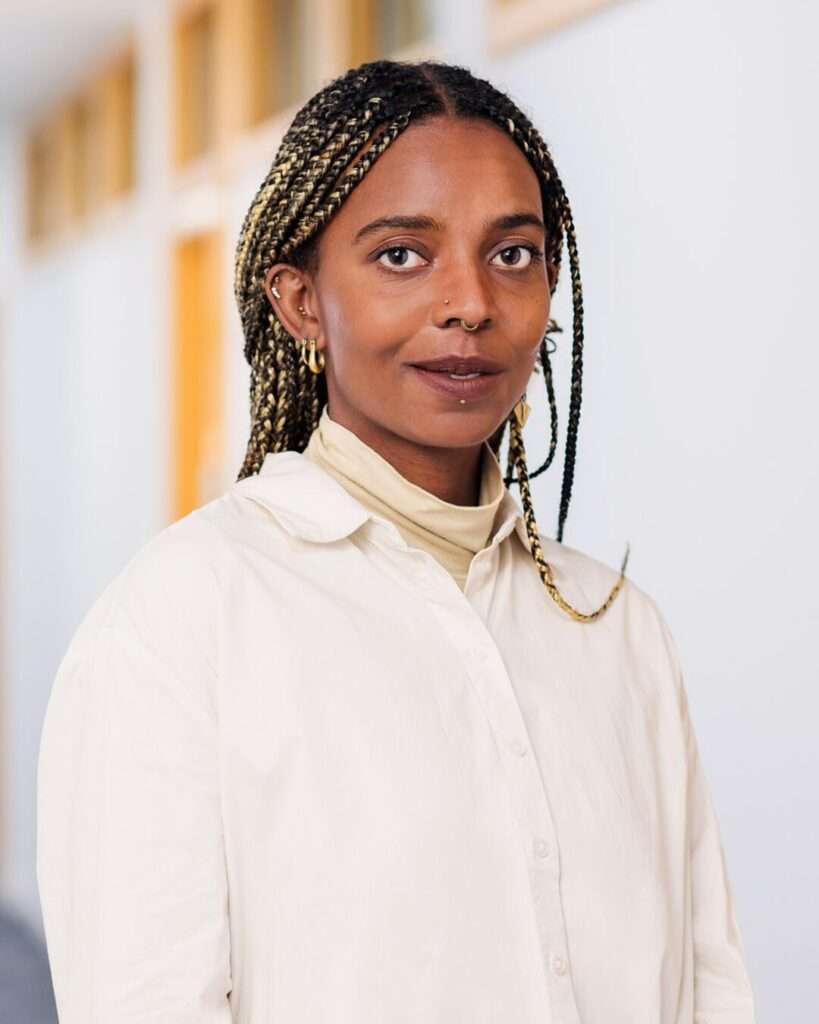
Jenny works at the intersection of anthropology, political education, and resistant knowledge. Her research focuses on queer-feminist and postcolonial perspectives, epistemic practices, and the migration histories of Afro-Brazilian women in Zurich. In addition to her dissertation, she is involved in projects that combine memory culture, community building, and political education. Her practice combines research and activism, always with the aim of making emancipatory knowledge visible and strengthening its possibilities for the present and the future.
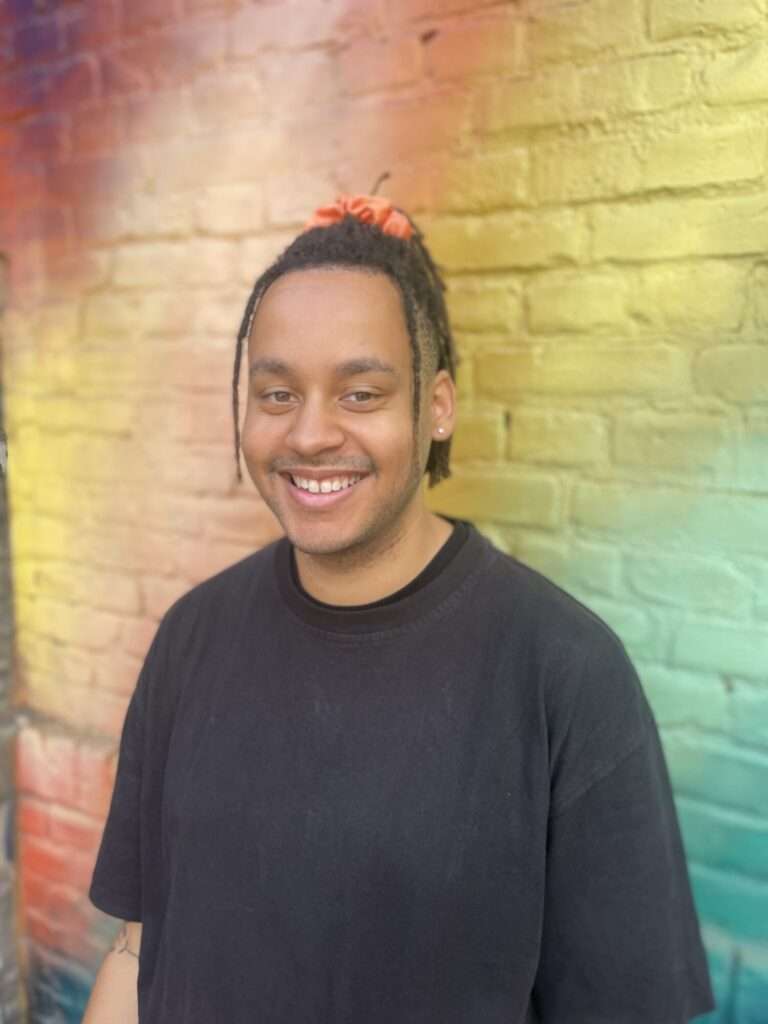
vin loves interdisciplinary work and operates between scientific research, education, and systemic change. With several years of research experience in chemistry, vin is well-versed in data analysis, visualization, and science communication and loves to make complex topics such as quantum technologies, nanobots, and decolonizing/re-indigenizing science accessible—whether in text, image, video, or workshop form. Most recently, vin led the Quantum Career Project at Junge Tüftler*innen and, since completing a doctorate in chemistry (MPI for Intelligent Systems, University of Stuttgart), has explored the topic of knowledge justice in various fellowships (Humanity in Action, Mercator Kolleg).
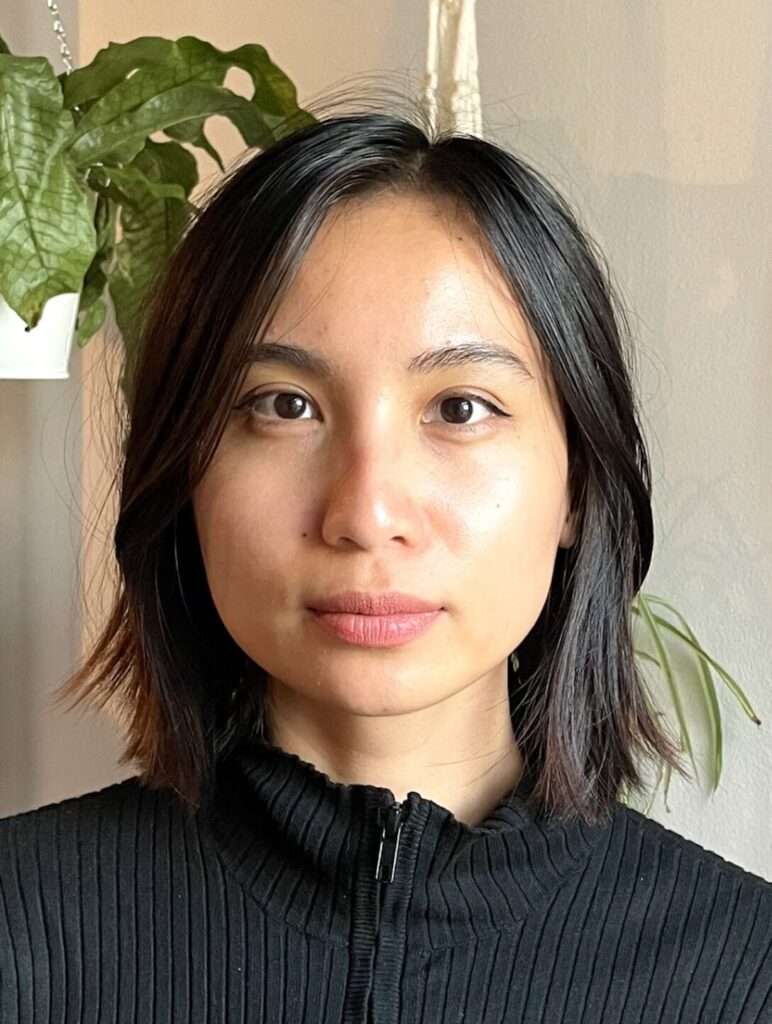
Hai Anh operates at the intersection of socio-political communication, digital activism, and visual design. Her experience at HateAid — the NGO combating digital violence — and at the Berlin-based start-up vollefarben, which empowers founders with migration backgrounds, has sharpened her perspective on strategic communication. At imagineers lab, she is currently responsible for the social media presence as well as the further development and implementation of the communication strategy.
Foundation
Our biographies tell the story of who we are. But to understand why imagineers lab exists, it is worth exploring our Foundation.